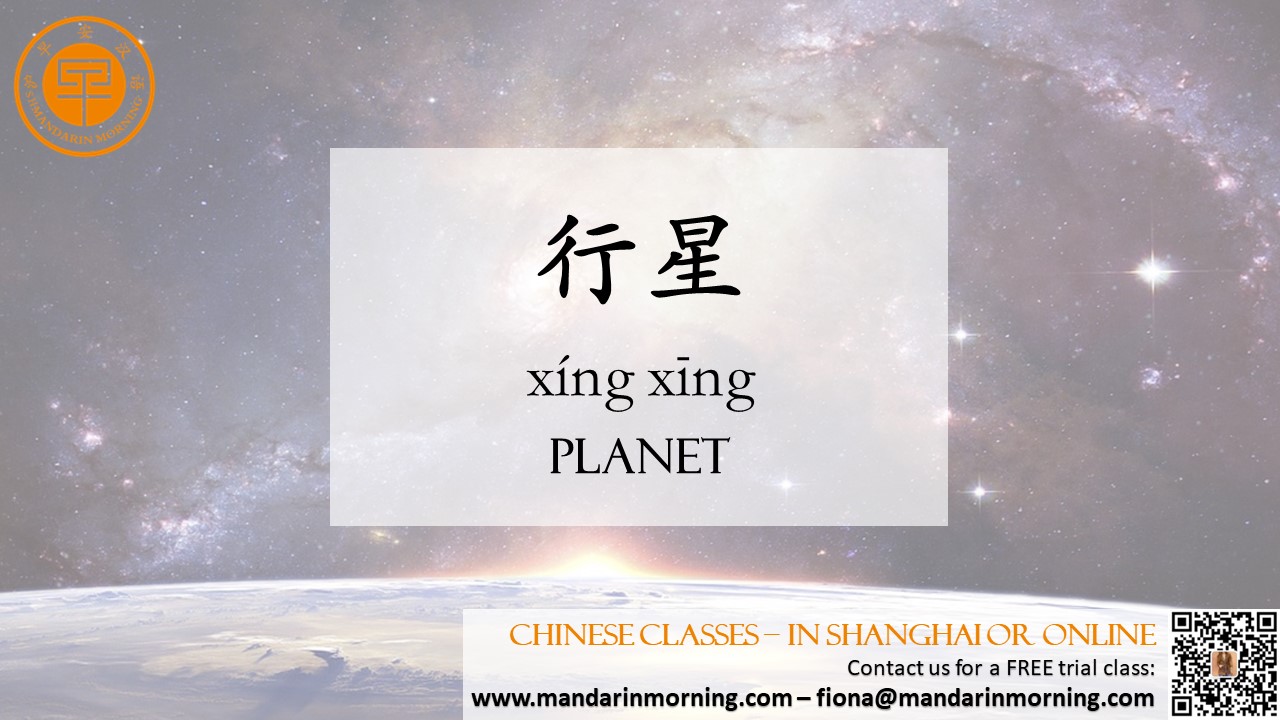| In our Solar System, astronomers often divide the planets into two groups—the inner planets and the outer planets. The four inner planets are closer to the Sun and are smaller and rockier. While the outer planets are further away, and most are made of gas or ice. You’ll learn four inner planets and the Sun in Chinese in this post.  The Sun 太阳 Too/extreme (太) + Yang/positive (阳) = Sun (太阳) What carries the extreme positive/yang energy—that’s the sun (太阳; tài yáng)! Mercury 水星 Combining “water” and “star,” we get Mercury (水星; shuǐ xīng). Mercury is the smallest planet in our Solar System and also the closest planet to the Sun. Venus 金星 What about “gold” and “star” put together? We get Venus (金星; jīn xīng). We like to imagine that to the Chinese ancestors’ eyes, Venus looked mostly like a “gold star” in the sky. Earth 地球 Earth, interestingly, isn’t ended with 星 (star; xīng) character, which is pronounced in the first tone. Instead, the Earth is translated to 地球 (earth + sphere; dì qiú) in Chinese. It is the only planet with life as we know it. Do you think there is intelligent life on other planets? Such as aliens who are called 外星人 (wài xīng rén) in Chinese, literally “outer planet person.” Mars 火星 The last inner planet we’re introducing is Mars, literally fire (火; huǒ) and star/planet (星; xīng). It’s exciting to learn more about this red planet. |